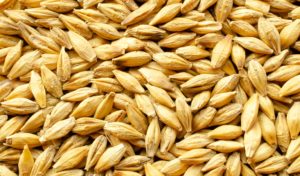A nutrient seed treatment product is designed to enhance the germination, early growth, and overall health of plants by providing essential nutrients directly to the seeds. This approach offers several potential benefits for both conventional and sustainable agricultural practices:
1. Increased Germination Rates: Nutrient seed treatments often contain essential elements like nitrogen, phosphorus, and potassium, along with micronutrients like zinc and copper. These nutrients are crucial for germination and early seedling development. Applying them directly to the seed can enhance the seed’s ability to sprout and establish a healthy seedling.
2. Faster Seedling Growth: Nutrient seed treatments can jumpstart the growth of seedlings by providing nutrients right from the start. This can lead to faster emergence, stronger initial growth, and a more vigorous root system, which collectively contribute to improved crop establishment.

3. Nutrient Accessibility: Treated seeds have direct access to the nutrients as they germinate and begin to grow. This is especially important in situations where soil nutrient availability might be limited or hard to access. The seed treatment ensures that young seedlings have access to the nutrients they need for early development.
4. Reduced Stress Effects: Early stages of plant growth are often sensitive to drought, cold temperatures, and nutrient deficiencies. Nutrient seed treatments can help alleviate these stresses by providing a nutrient buffer, allowing the seedlings to withstand adverse conditions more effectively.
5. Resource Efficiency: Nutrient seed treatments can enhance nutrient use efficiency by delivering nutrients directly to the plant’s growing parts. This reduces the risk of nutrient leaching into the environment, which can occur with traditional soil-applied fertilizers. As a result, nutrient seed treatments contribute to sustainable and environmentally friendly agricultural practices.

6. Precision Agriculture: Nutrient seed treatments enable targeted nutrient delivery to individual seeds, ensuring uniform nutrient availability across the field. This aligns well with precision agriculture practices that aim to optimise resource use and crop performance at a local level.
7. Compatibility with Other Inputs: Nutrient seed treatments can often be combined with other seed treatments, such as fungicides or insecticides, offering a comprehensive approach to protect and nourish young plants from multiple challenges simultaneously.
8. Increased Yield Potential: Healthy and vigorously growing plants during their early stages are more likely to develop into productive and high-yielding crops. Nutrient seed treatments contribute to improved plant health, which can translate into higher yields.
9. Risk Reduction: By providing nutrients directly to the seeds, nutrient seed treatments can help mitigate the potential negative impacts of soil nutrient imbalances or deficiencies that might hinder plant growth.
In summary, nutrient seed treatment products offer a range of benefits, including improved germination rates, nutrient accessibility, stress tolerance and increased yield potential. By providing essential nutrients directly to the seeds, these treatments contribute to healthier plants, better early growth, and more efficient agricultural systems.